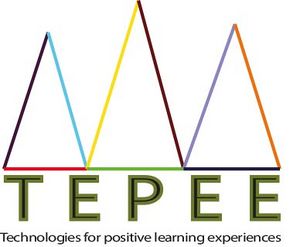« Utilisateur:Gaëlle Molinari » : différence entre les versions
Aucun résumé des modifications |
Aucun résumé des modifications |
||
| Ligne 18 : | Ligne 18 : | ||
''Doctorant.e.s / PhD students'' | ''Doctorant.e.s / PhD students'' | ||
*[[Fichier:Yann Steph.jpg|vignette|198x198px|Yannick S. Nleme Ze|alt=]]'''Yannick Stéphane Nleme Ze'''. | *[[Fichier:Yann Steph.jpg|vignette|198x198px|Yannick S. Nleme Ze|alt=]]'''Yannick Stéphane Nleme Ze'''. Yannick Stéphane Nleme Ze is a PhD student in Education Sciences at the TECFA research unit (University of Geneva) under the supervision of Prof. Gaëlle Molinari. He is also a Teaching and Research Assistant and organizes with Prof. Molinari, the Digital Learning and Distance Education course (ADID), and co-leads the Master of Science in Learning and Teaching Technologies (MALTT) theses. On the research side, Yannick Stéphane Nleme Ze has an interest in learner engagement in distance learning contexts, as well as in motivation to learn with ICT in both secondary and higher education. As part of his thesis, he is conducting research on learner engagement in MOOC discussion forums. His work aims to identify the dimensions, indicators and factors of engagement in MOOC discussion forums, design and validate a scale to measure this engagement and analyze the different levels of engagement observed between the structured and unstructured MOOC discussion forums. Before starting his thesis, Yannick Stéphane Nleme Ze worked for 10 years as a high school physics teacher. He holds a secondary and high school teacher's diploma from the higher teacher training college of Yaoundé (University of Yaoundé 1, Cameroon), a Master's degree in technological innovation (University of Angers, France), a Master's degree in educational technology (University of Montreal, Canada), and a University Research Diploma in digital education (University of Lille, France). '''Keys words:''' Engagement, motivation, distance learning, MOOC, discussion forums, ICT in education. | ||
* | * | ||
* | * | ||
Version du 6 septembre 2021 à 11:36
*Depuis 2018, Gaëlle Molinari est professeure assistante en psychologie de l’éducation et en technologies éducatives, au TECFA (Faculté de Psychologie et des Sciences de l’Education) à l’Université de Genève et à UniDistance. A l’Université de Genève, elle est également co-directrice du MALTT (Master of Science in Learning and Teaching Technologies), et présidente du collège des docteur.e.s en Psychologie.
Courte biographie. Gaëlle Molinari est docteure en Psychologie Cognitive (Université Lyon 2, juillet 2002). Ces travaux de doctorat portent sur le rôle des connaissances initiales dans l’apprentissage à partir de textes scientifiques et d’illustrations. Elle a réalisé deux séjours post-doctoraux, l’un à l’ENS de Lyon, France (2003-2005) et l’autre à l’EPFL de Lausanne, Suisse (2005-2008), au cours desquels elle mène des recherches sur l’apprentissage collaboratif médiatisé par ordinateur, en particulier sur le rôle du processus de modélisation du partenaire et l’effet des outils d’awareness de groupe. Elle est recrutée par UniDistance en 2008 en tant que cheffe de projet, et enseigne dans le Bachelor de Psychologie (i) les méthodes expérimentales pour la psychologie, la psychologie de l’éducation et l’introduction à la psychologie. Elle devient professeure associée en 2010.
**Since 2018, Gaëlle Molinari is an assistant professor in educational psychology and educational technologies at the TECFA (Faculty of Psychology and Educational Sciences) at the University of Geneva and UniDistance. At the University of Geneva, she is also co-director of the MALTT (Master of Science in Learning and Teaching Technologies), and president of the College of PhD students.
Short bio. Gaëlle Molinari has a PhD in Cognitive Psychology (University of Lyon 2, July 2002). Her doctoral work focuses on the role of prior knowledge in learning from texts and illustrations. She completed two post-doctoral fellowships, one at ENS Lyon, France (2003-2005) and the other at EPFL Lausanne, Switzerland (2005-2008), during which she conducted research on computer-supported collaborative learning, particularly on the role of the mutual modeling process and the effects of group awareness tools. She was recruited by UniDistance in 2008 as a project leader, and teaches in the Bachelor's degree in Psychology program (i) experimental methods for psychology, (ii) educational psychology and (iii) introduction to psychology. She became an associate professor in 2010.
Contact
TECFA (Faculté de Psychologie et des Sciences de l'Education), Université de Genève & UniDistance, Boulevard du Pont d’Arve 40, CH-1211, Genève 4, Suisse. Tél : +41 (0)22 379 93 97. Gaelle.Molinari@unige.ch et gaelle.molinari@unidistance.ch.
Thèmes de recherche / Research topics
*Gaëlle Molinari coordonne TEPEE (Technologies for Positive lEarning Experiences) qui est un tout jeune groupe de recherche associé conjointement au TECFA (Faculté de Psychologie et des Sciences de l’Education, Université de Genève) et à UniDistance. Les recherches au sein de TEPEE se structurent autour d'un thème en émergence, les technologies positives pour l’apprentissage, thème qui prend appui sur différents domaines : la psychologie des émotions et ses travaux sur le rôle des émotions dans l'apprentissage (Pekrun, 2006) ; la psychologie positive qui concerne l'étude scientifique des facteurs qui favorisent le développement du plein potentiel (Vallerand & Bragoli-Barzan, 2019) ; la technologie positive qui se centre sur la conception et l’usage des technologies numériques pour promouvoir le fonctionnement optimal des individus, des groupes et des organisations (Gaggioli, Villani, Serino, Banos, & Botella, 2019). Parmi les objectifs de recherche actuels du groupe TEPEE figurent : celui de comprendre comment améliorer l’expérience apprenante des étudiant.e.s en formation hybride/à distance, notamment comment les aider à se maintenir engagé.e.s, à faire face à la pression à l'autorégulation, aux fluctuations de motivation et d'énergie ; et celui de comprendre le rôle des émotions dans l’apprentissage collaboratif à distance, notamment comment aider les apprenant.e.s à prendre conscience des émotions ressenties et les utiliser pour mieux collaborer.
**Gaëlle Molinari coordinates TEPEE (Technologies for Positive lEarning Experiences), a young research group associated with TECFA (Faculty of Psychology and Educational Sciences, University of Geneva) and UniDistance. TEPEE's research is structured around an emerging theme, positive technologies for learning, a theme that draws on various fields: Psychology of emotions and its work on the role of emotions in learning (Pekrun, 2006); Positive Psychology which concerns the scientific study of factors that promote the development of individuals' full potential (Vallerand & Bragoli-Barzan, 2019); Positive Technology, which focuses on the design and use of digital technologies to promote the optimal functioning of individuals, groups, and organizations (Gaggioli, Villani, Serino, Banos, & Botella, 2019). Current research goals of the TEPEE group include: understanding how to improve the learning experience of students in hybrid/distance learning, including how to help them stay engaged, cope with pressure to self-regulate (Cosnefroy, 2010), also cope with fluctuations in motivation and energy; and understanding the role of emotions in online collaborative learning, including how to help learners become aware of the emotions experienced during group work and use them to better collaborate.
Membres de TEPEE / TEPEE's members
Doctorant.e.s / PhD students
- Yannick Stéphane Nleme Ze. Yannick Stéphane Nleme Ze is a PhD student in Education Sciences at the TECFA research unit (University of Geneva) under the supervision of Prof. Gaëlle Molinari. He is also a Teaching and Research Assistant and organizes with Prof. Molinari, the Digital Learning and Distance Education course (ADID), and co-leads the Master of Science in Learning and Teaching Technologies (MALTT) theses. On the research side, Yannick Stéphane Nleme Ze has an interest in learner engagement in distance learning contexts, as well as in motivation to learn with ICT in both secondary and higher education. As part of his thesis, he is conducting research on learner engagement in MOOC discussion forums. His work aims to identify the dimensions, indicators and factors of engagement in MOOC discussion forums, design and validate a scale to measure this engagement and analyze the different levels of engagement observed between the structured and unstructured MOOC discussion forums. Before starting his thesis, Yannick Stéphane Nleme Ze worked for 10 years as a high school physics teacher. He holds a secondary and high school teacher's diploma from the higher teacher training college of Yaoundé (University of Yaoundé 1, Cameroon), a Master's degree in technological innovation (University of Angers, France), a Master's degree in educational technology (University of Montreal, Canada), and a University Research Diploma in digital education (University of Lille, France). Keys words: Engagement, motivation, distance learning, MOOC, discussion forums, ICT in education.
- Cécile Vassaux (à partir du printemps 2022). Le bien-être des enseignant.e.s dans les environnements numériques / Teachers' psychological well-being in digital environments.
- Bartlomiej Chrobak (en co-direction avec le Dr. Laurence Gagnière, UniDistance) (à partir du printemps 2022). Les processus volitionnels dans les dispositifs hybrides de formation / volitional processes in hybrid learning environments.
Etudiant.e.s en master / Master students
- Djamileh Aminian (TECFA, MALTT). Le rôle de la confusion dans l'apprentissage / Role of confusion in learning.
- Stéphanie Doriot (UniDistance, Master in Psychology). Le bien-être des adolescents dans des situations d'apprentissage collaboratif / Adolescents' well-being in collaborative learning situations.
- Yong Xin Lam (TECFA, MALTT). Favoriser l'égalité filles-garçons dans le cadre de l'enseignement de l'informatique / Promoting gender equality in computer science education.
Enseignement / Teaching
UniDistance, BA de Psychologie / in Psychology
*Gaëlle Molinari est responsable du module de cours de psychologie de l’éducation (M09, semestre de printemps, 10 crédits ECTS). Ce cours hybride est organisé autour de 5 périodes de 3-4 semaines à distance et de 5 cours de 3 heures en présence. Voici les thèmes des périodes : behaviorisme (P1), cognitivisme (P2), (socio-)constructivisme (P3), apprentissage collaboratif (P4), apprentissage numérique (P5).
**Gaëlle Molinari is in charge of the course module in Educational Psychology (M09, Spring semester, 10 ECTS credits). This hybrid course is organized around 5 distance learning periods of 3-4 weeks and 5 face-to-face classes of 3 hours each. Here are the topics of the periods: behaviorism (P1), cognitivism (P2), (socio-)constructivism (P3), collaborative learning (P4), digital learning (P5).
TECFA, Master MALTT
*Gaëlle Molinari est responsable du cours hybride Apprentissage DIgital et formation à Distance (ADID) qui se décline en deux modules : ADID1 (semestre d’automne, 6 crédits ECTS) et ADID2 (semestre de printemps, 6 crédits ECTS). ADID1 offre un bagage théorique autour de trois thèmes : (1) apprendre seul et en groupe : théories et processus (P1) ; (2) les technologies pour soutenir et favoriser l'apprentissage individuel et collaboratif (P2) ; (3) le design pédagogique des dispositifs numériques de formation (P3). ADID2 est un cours basé sur la pédagogie de projet qui propose aux étudiant.e.s de concevoir une action de formation collaborative hybride ou à distance.
**Gaëlle Molinari is in charge of the hybrid course Digital Learning and Distance Education (ADID) which is divided into two modules: ADID1 (Fall semester, 6 ECTS credits) and ADID2 (Spring semester, 6 ECTS credits). ADID1 provides students with a theoretical background around three topics: (1) Learning alone and in groups: theories and processes (P1); (2) Technologies to support and foster individual and collaborative learning (P2); Instructional design for distance learning education (P3). ADID2 is a course that uses project-based learning as a pedagogical approach and that invites students to design a hybrid training program including collaborative learning activities.
- ADID1 : Les productions des étudiant.e.s / The students' productions
- ADID2 : Les productions des étudiant.e.s / The students' productions
Publications et communications / Publications and communications (2020-2021)
Articles dans des revues / Peer-reviewed journals
- Molinari, G., Lavoué, E., & Fenouillet, F. (2021). Les technologies positives pour l’apprentissage : Une introduction. A paraître dans la revue STICEF.
- Molinari, G., Muller Mirza, N.,& Tartas, V. (2021). Regards croisés des approches cognitives et socioculturelles sur l’apprentissage collaboratif : quelles contributions dans le domaine de l’éducation ?. A paraître dans la revue Raisons Educatives.
- Molinari, G. & Schneider, E. (2020). Soutenir les stratégies volitionnelles et améliorer l’expérience des étudiants en Formation à Distance : Quels potentiels pour le design tangible? (Supporting volitional strategies and improving the distance learning experience: What potential for tangible design?). Distances et médiations des savoirs. Distance and Mediation of Knowledge, (32). https://doi.org/10.4000/dms.5731.
- Nleme Ze, Y.-S. & Molinari, G., (2021). Conceptualisation de l’engagement des étudiants dans les forums de discussion des MOOC. A paraître dans Distances et Médiations des Savoirs.
- Avry, S., Chanel, G., Bétrancourt, M., & Molinari, G. (2020). Achievement appraisals, emotions and socio-cognitive processes: how they interplay in collaborative problem-solving? Computers in Human Behavior, 106267. https://doi.org/10.1016/j.chb.2020.106267. (Impact Factor: 5.88)
- Avry, S., Molinari, G., Bétrancourt, M., & Chanel, G. (2020). Sharing emotions contributes to regulating collaborative intentions in group problem-solving. Frontiers in Psychology, 11, 1160. https://doi.org/10.3389/fpsyg.2020.01160. (Impact Factor: 2.129)
- Lavoué, E., Kazemitabar, M., Doleck, T., Lajoie, S. P., Carrillo, R., & Molinari, G. (2020). Towards emotion awareness tools to support emotion and appraisal regulation in academic contexts. Educational Technology Research and Development, 68(1), 269-292. DOI:10.1007/s11423-019-09688-x. (Impact Factor: 1.79)
Articles dans des conférences / Peer-reviewed conference papers
- Avry, S., & Molinari, G. (2021). Explicit sharing of emotions improves the relationship of groups with lower dispositions to regulate emotions in collaborative problem-solving. In Hmelo-Silver, C. E., De Wever, B., & Oshima, J. (Eds.). (2021). Proceedings of the 14th International Conference on Computer-Supported Collaborative Learning - CSCL 2021 (pp.141-145). Bochum, Germany: International Society of the Learning Sciences.
- Nleme Ze, Y.-S. et Molinari, G. (2020). Vers une conceptualisation de l’engagement des étudiants dans les forums de discussion des MOOC : Résultats préliminaires. Actes de la conférence PRUNE, Université de Poitiers, 22 juin. Poitiers, France.
(Co-)Editions
- Molinari, G., Lavoué, E., & Fenouillet, F. (2021). Co-editors for the special issue « Positive Technologies for Learning » of the journal Sciences et Technologies de l'Information et de la Communication pour l'Éducation et la Formation (STICEF)
- Sander, E., Molinari, G, & Gentaz, E. (2021). Co-editors for the special issue « Cognition for education : Challenges and Prospects » (number 25) of the journal Raisons Educatives.
Other publications
- Molinari, G. (2020). INFOX#12 : Apprendre à distance, c’est moins de pression. 12 infox sur le e-learning au temps du coronavirus. Laboratoire d’Innovation Pédagogique, Université de Fribourg. https://www.lip-unifr.ch/2020/04/07/infox12-apprendre-a-distance-cest-moins-de-pression/.
Invited speaker
- Molinari, G. (2021). New challenges for educational technology in the time of pandemic. BEA Workshop Panel on New Challenges for Educational Technology. 16th Workshop on Innovative Use of NLP for Building Educational Applications, https://sig-edu.org/bea/current.
- Molinari, G. (2020). Retour d’expérience sur les adaptations techno-pédagogiques durant la période de confinement. Conférencière invitée pour une table ronde dans le cadre du séminaire en ligne IMT4ET (Innovative Methods and Tools for Educational Technology), 28 mai. https://imt4et.wp.imt.fr/.


